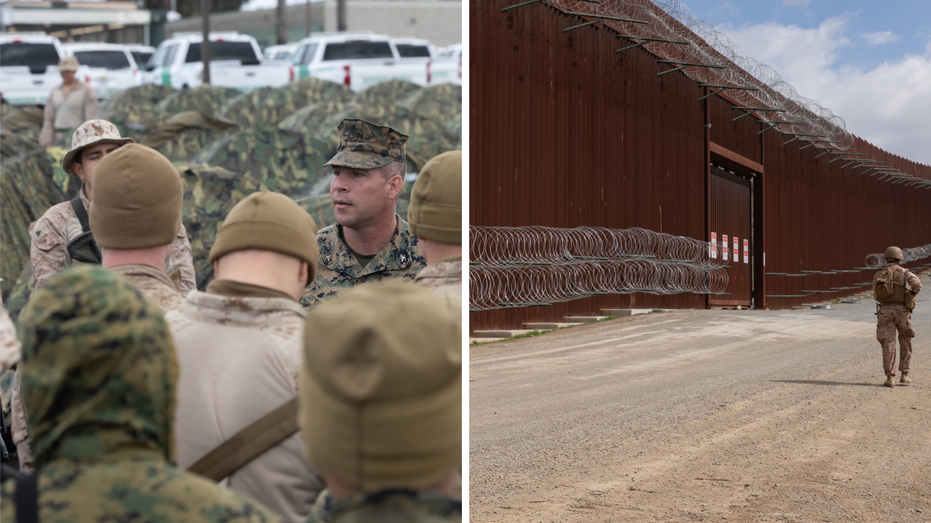Trump's Border Troop Deployment: A 'Game Changer' Says San Diego Sector Chief

Sarah Johnson
March 17, 2025
Brief
U.S. military deployment to San Diego’s southern border under President Trump has significantly reduced illegal crossings, aiding CBP with surveillance, infrastructure, and reinforced barriers.
San Diego, Calif. — The deployment of U.S. military personnel to the southern border under President Trump has been hailed as a "force multiplier" by San Diego Sector acting Chief Patrol Agent Jeffrey Stalnaker. This strategic move has reportedly had a significant impact on curbing illegal border crossings.
"It's a force multiplier," Stalnaker emphasized in an interview, highlighting how military assistance has bolstered the efforts of U.S. Customs and Border Protection (CBP) agents. The San Diego border sector, one of the busiest crossing points between the U.S. and Mexico, has seen hundreds of service members from the Army, Marines, and Navy deployed in recent weeks.
Since the deployments began shortly after President Trump took office, the results have been striking. February saw southern border apprehensions drop to their lowest levels since 2000, according to CBP data. Encounters with illegal migrants also plummeted, with just 30,000 recorded compared to over 130,000 during the same period in 2023 and 2024.
The military's contributions extend beyond physical barriers like walls and razor wire. Stalnaker pointed out that improved infrastructure, such as weather-ready roads, has allowed agents to respond more quickly and effectively to enforcement events.
Task Force Sapper, comprising nearly 500 Marines, has been instrumental in reinforcing existing border barriers. Their efforts include strategically placing razor wire to slow crossings and provide CBP agents with added reaction time. "We are the engineers conducting construction to reinforce barriers," explained Lt. Col. Tyrone Barrion, the commanding officer of Task Force Sapper. He described the obstacles as effective in disrupting attempts to breach the border.
Barrion noted that the Marines will continue their work along the Pacific coastline of San Diego and then address a challenging gap in the barrier caused by rough terrain. Army engineers and military police officers from Ft. Campbell, Kentucky, have also joined the effort, focusing on surveillance and detection. While they don't directly intervene to stop crossings, their support allows CBP agents to concentrate on apprehensions, enhancing overall efficiency.
An Army surveillance station on Otay Mountain, overlooking a popular crossing valley near Tijuana, has been a critical asset. The soldiers operating the equipment have become the "eyes and ears" of CBP agents, helping them respond swiftly to potential crossings.
CBP has faced manning challenges, but the presence of troops has allowed agents to focus their efforts on enforcement with the confidence of additional support. "They're a great partner," Stalnaker added. "We enjoy having them out here."
Topics
Editor's Comments
You can't deny the irony here. Razor wire and military troops transforming the border into a near-impenetrable fortress—it's like something out of a dystopian novel. But hey, if stats don't lie, and crossings have really dropped that dramatically, someone might argue this was the right kind of 'engineering.'
Like this article? Share it with your friends!
If you find this article interesting, feel free to share it with your friends!
Thank you for your support! Sharing is the greatest encouragement for us.



